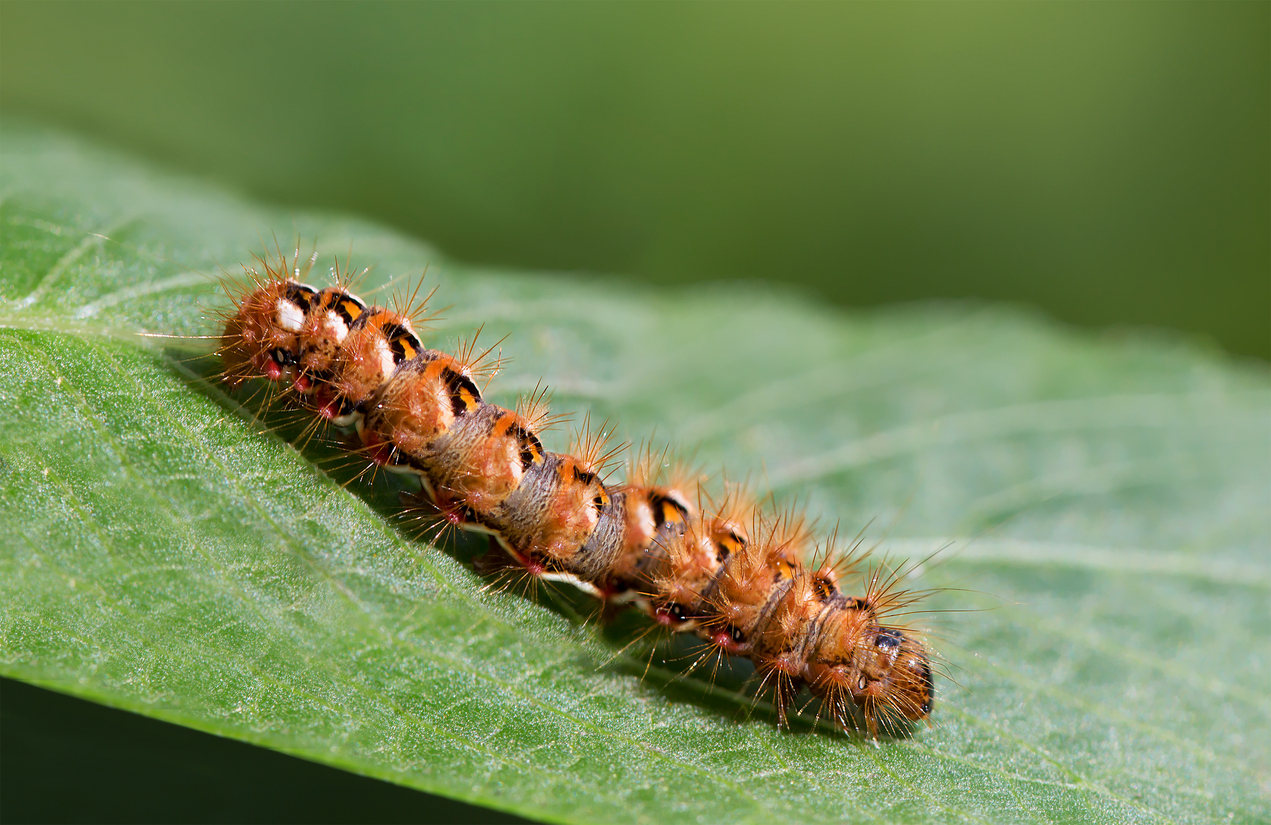New study finds plants have the power to turn caterpillars into cannibals

A free daily email with the biggest news stories of the day – and the best features from TheWeek.com
You are now subscribed
Your newsletter sign-up was successful
Plants have a sneaky and sadistic trick to prevent caterpillars from munching on their leaves, a new study published Monday in the journal Nature Ecology and Evolution revealed. Researchers have discovered that plants secrete a chemical that makes them taste less delicious, leaving herbivorous caterpillars with the tough choice of eating less appealing foliage — or each other.
Caterpillars sometimes choose cannibalism. "When the chips are down, eating another caterpillar may not be a bad decision, [and] it turns out that the chips can be down if you find yourself on a plant that is heavily defended," said John Orrock, a co-author of the research.
The researchers tested this phenomenon by coating tomato plants in four different sprays — one containing only detergent and the others containing different amounts of methyl jasmonate, the substance given off by plants — and then siccing eight beet armyworm caterpillars on the plants:
The Week
Escape your echo chamber. Get the facts behind the news, plus analysis from multiple perspectives.

Sign up for The Week's Free Newsletters
From our morning news briefing to a weekly Good News Newsletter, get the best of The Week delivered directly to your inbox.
From our morning news briefing to a weekly Good News Newsletter, get the best of The Week delivered directly to your inbox.
After 52 hours, about 7 percent of caterpillars were cannibalised on leaves sprayed with either no methyl jasmonate or the lowest concentration, while around 16 percent of caterpillars had been eaten on leaves sprayed with either of the more concentrated methyl jasmonate sprays.Most revealing was that more than five times as much plant matter was left on plants sprayed with the highest concentration of methyl jasmonate compared to those sprayed only with detergent — the latter were almost completely stripped of leaves. [The Guardian]
Orrock said that while scientists knew herbivores "were sensitive to plant defenses," they didn't realize that plants' defenses might cause herbivores to make "the choice of eating another herbivore." "From the plant defense perspective, making yourself so nasty that you are suddenly not the best thing on the menu works pretty well," Orrock said.
A free daily email with the biggest news stories of the day – and the best features from TheWeek.com
-
 American universities are losing ground to their foreign counterparts
American universities are losing ground to their foreign counterpartsThe Explainer While Harvard is still near the top, other colleges have slipped
-
 How to navigate dating apps to find ‘the one’
How to navigate dating apps to find ‘the one’The Week Recommends Put an end to endless swiping and make real romantic connections
-
 Elon Musk’s pivot from Mars to the moon
Elon Musk’s pivot from Mars to the moonIn the Spotlight SpaceX shifts focus with IPO approaching
-
 Epstein files topple law CEO, roil UK government
Epstein files topple law CEO, roil UK governmentSpeed Read Peter Mandelson, Britain’s former ambassador to the US, is caught up in the scandal
-
 Iran and US prepare to meet after skirmishes
Iran and US prepare to meet after skirmishesSpeed Read The incident comes amid heightened tensions in the Middle East
-
 EU and India clinch trade pact amid US tariff war
EU and India clinch trade pact amid US tariff warSpeed Read The agreement will slash tariffs on most goods over the next decade
-
 Israel retrieves final hostage’s body from Gaza
Israel retrieves final hostage’s body from GazaSpeed Read The 24-year-old police officer was killed during the initial Hamas attack
-
 China’s Xi targets top general in growing purge
China’s Xi targets top general in growing purgeSpeed Read Zhang Youxia is being investigated over ‘grave violations’ of the law
-
 Panama and Canada are negotiating over a crucial copper mine
Panama and Canada are negotiating over a crucial copper mineIn the Spotlight Panama is set to make a final decision on the mine this summer
-
 Why Greenland’s natural resources are nearly impossible to mine
Why Greenland’s natural resources are nearly impossible to mineThe Explainer The country’s natural landscape makes the task extremely difficult
-
 Iran cuts internet as protests escalate
Iran cuts internet as protests escalateSpeed Reada Government buildings across the country have been set on fire